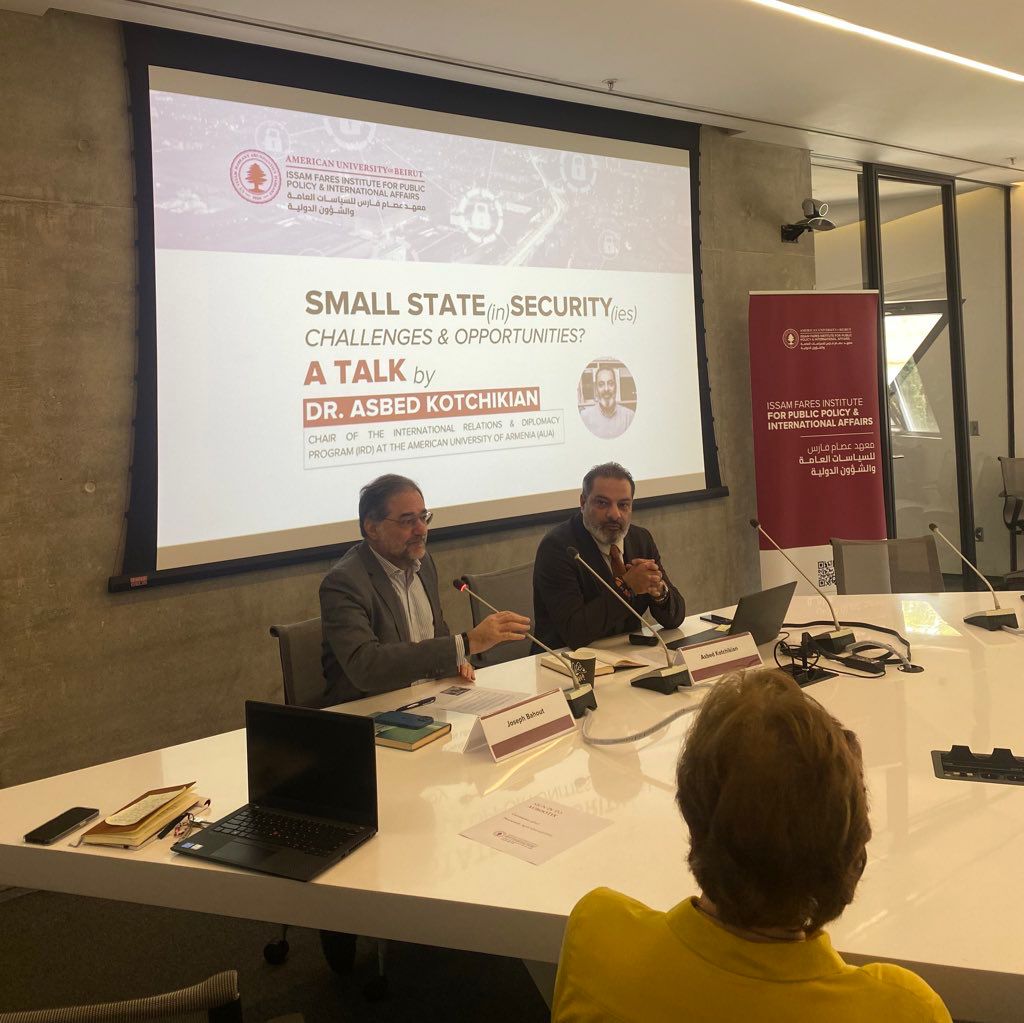|
The Issam Fares Institute for Public Policy and International Affairs hosted a talk by Dr. Asbed Kotchikian , Chair of the International Relations & Diplomacy (IRD) Program at the American University of Armenia (AUA), titled “Small State (in) Security(ies): Challenges and Opportunities?” on Friday, April 5, 2024. Bahout opened the talk by challenging the traditional view of small states in international relations and their inherent weakness due to size and resources. He noted that some small states, such as Qatar, have become influential global players by leveraging their unique assets. Kotchikian, introduced the complex roles of small states in international relations, highlighting their strategic adaptability and potential to influence global dynamics significantly.
Kotchikian presented his new theory of small states, emphasizing its ability to signal global trends and their unique position in international relations, despite traditional perceptions of their limited influence. He highlighted the challenges of defining small states and their strategic importance in foreign policy and security. Kotchikian emphasized the adaptability of small states and their potential to play significant roles on the international stage through strategic alliances, engagement in international organizations, and advocacy for international law. Kotchikian discussed the evolving dynamics of the international political landscape, highlighting the shift towards a more multipolar or bipolar world, and the growing divide between the West and other global powers. He encouraged applying the concept of small states across various fields, including public health and governance, to understand their potential impact despite their size. Through the example of a peacekeeping mission where Canadian military equipment was held due to financial disputes, he illustrated the complexities and vulnerabilities, even geographically, which large nations like Canada can face. Kotchikian also reflected on the changing international roles of countries like Ukraine, noting how strategic actions and influence can elevate a state's standing in global affairs beyond traditional measures of size and power. Furthermore, he examined the difficulties small states face in achieving cohesive security strategies and internal governance, suggesting models of cooperation seen in the Nordic and Baltic Councils and the potential of international organizations like BRICS Plus, to facilitate equitable collaboration among diverse members. Comments are closed.
|
Archives
July 2024
|

